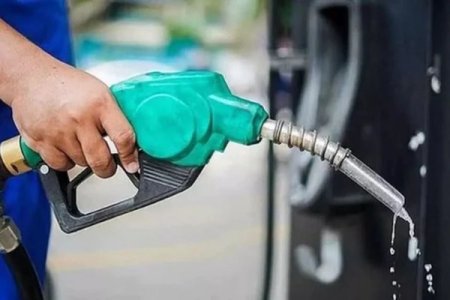
Nigeria's recent reintroduction of gasoline subsidies sparks IMF concerns over oil revenue. IMF report suggests the move could consume half of the projected revenue. Despite reforms initiated in June 2023 to address fiscal challenges, delays in compensatory measures and corruption concerns persist.
Nigeria has recently opted to reintroduce gasoline subsidies, a move that has stirred concerns about its potential implications on the nation's oil revenue, as indicated by a report from the International Monetary Fund (IMF).
According to the IMF report published on Thursday, this decision could potentially consume close to half of Nigeria's projected oil revenue for the year, estimated at around 8.43 trillion naira ($5.9 billion) out of a total of 17.7 trillion naira. This decision follows the reforms initiated in June 2023, aimed at addressing fiscal challenges, which faced hurdles due to delays in implementing compensatory measures for the impoverished and concerns over corruption.
President Bola Tinubu's administration initially halted the $10 billion subsidy shortly after inauguration last year to tackle the country's financial strains exacerbated by soaring debt-service costs. However, the subsequent removal of the subsidy and devaluation of the naira led to a significant spike in fuel prices, triggering inflation and public protests.
To mitigate the burden on citizens, authorities capped fuel pump prices below cost, effectively reintroducing implicit subsidies by the end of 2023. Nevertheless, the depreciation of the currency by nearly 70% against the dollar since last June has further complicated Nigeria's economic situation.
Despite being Africa's largest oil producer, Nigeria continues to rely on gasoline imports due to inadequate refining capacity. The imminent completion of major oil refineries, including Aliko Dangote's 650,000 barrel-a-day refinery in Lagos, is expected to alleviate this dependence in the future.
The IMF foresees a gradual phase-out of the fuel subsidy over the next two years as the government expands its cash transfer program targeting the poorest segments of society, given that approximately 40% of Nigerians live in extreme poverty.
In response to raised concerns, Olu Verheijen, a senior energy aide to President Tinubu, emphasized the government's commitment to maintaining price stability and preventing social unrest, underscoring the prerogative to intervene in the market if necessary.
As Nigeria navigates its energy policies and economic challenges, stakeholders closely monitor developments to ensure sustainable and equitable solutions for the nation's prosperity.






